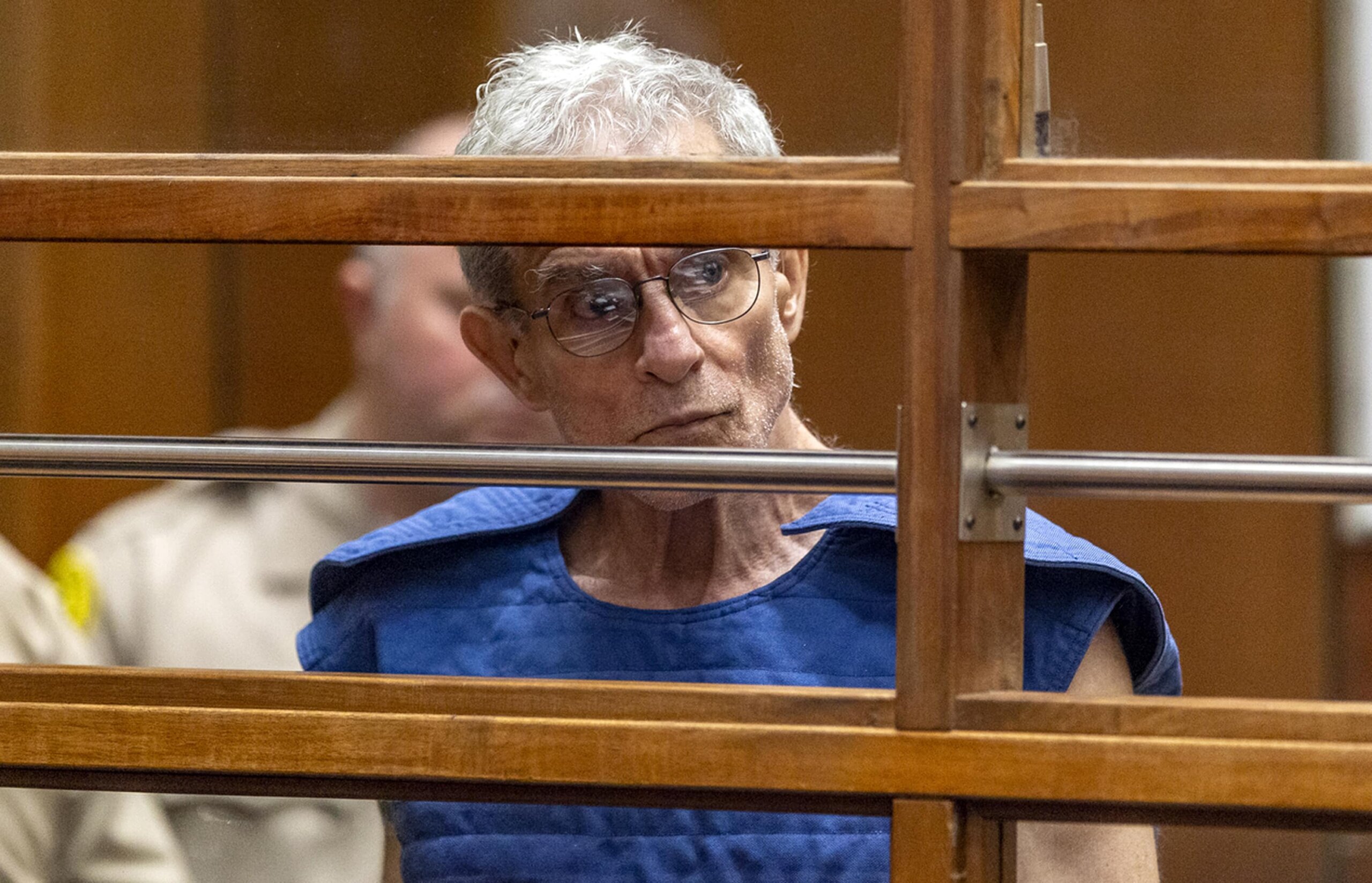Los Angeles political donor Ed Buck was sentenced to 30 years in prison last Thursday, for drug and sex crimes that included providing lethal doses of methamphetamine to two Black men. The sentence comes after last year’s conviction of the openly gay actor, model and businessman of multiple felonies, including overdosing his victims with the lethal drug and enticing them to cross state lines to engage in prostitution.
“Buck does not value human life beyond his own,” wrote U.S. attorney Chelsea Norell in a memo urging U.S. District Judge Christina A. Snyder to sentence Buck to life in prison. “He used human beings as playthings, destroying their lives merely to appease his own sexual gratifications.”
A self-made millionaire, Buck made a name for himself through his business interests and involvement in Arizona and California state politics. Prior to his trial, he was well known for his advocacy around AIDS awareness and his campaign to impeach Arizona’s governor, Evan Mecham, in 1987. By his 40s, however, Buck had moved to California and was engaging in excessive amphetamine use.
Buck began luring young Black men, who were often homeless, dealing with addiction and engaging in sex work, into “party and play” sessions at his Laurel Avenue apartment. The men who testified against Buck said he would offer them extra money if they allowed him to inject them with methamphetamine—sometimes even withholding payment if they didn’t smoke enough or let him inject them. Once they were unconscious, he filmed himself physically abusing and sexually assaulting them. Witnesses who testified at the trial said he also referred to Black men using the N-word.
The two men who died in Buck’s apartment were found in near-identical circumstances. Twenty-six-year-old Gemmel Moore flew in from Texas on a ticket that Buck had purchased in 2017, only to die at Buck’s residence hours after arrival. Authorities initially ruled his death an accident but reopened an investigation after Moore’s mother and friends publicly questioned the finding.
The second victim, 55-year-old Timothy Dean, went to Buck’s apartment in January 2019, where he overdosed within the next hour, according to a sentencing memo from Norell. But it took the near death of a third victim for authorities to finally arrest Buck later that year.
In September 2019, Buck injected Dane Brown with three doses of methamphetamine before he managed to escape and call 911. Buck was arrested a week later. Although only two men have been reported dead, investigators say he abused as many as 10 or more victims in total.
Black LGBTQ2S+ activists have been sounding the alarm on Ed Buck since Moore’s death, with writer Jasmyne Cannick and outlets like The Black Wall Street Times voicing frustration with law enforcement’s refusal to take the accusations against Buck seriously.
“If another young, Black gay man overdoses or worse dies at Democratic donor Ed Buck’s apartment it’s going to be the fault of the sheriff’s dept and L.A. District [Attorney] for not stopping him when they had the opportunity to,” Cannick wrote on Twitter in July 2018—months before Dean was killed.
While Buck’s lawyer, Mark Werksman, argued that his client’s “increasingly risky and self-destructive behaviour” stemmed from his own childhood sexual abuse—claims that were uncorroborated—Norell argued that this did not excuse his behaviour.
“Abuse 50 years ago does not begin to excuse his abuse here,” she said. “If anything, it should have made him more empathetic.”
Relatives of Buck’s victims said the 30-year term was appropriate, even if they would have preferred a permanent life sentence, according to the Los Angeles Times. Although Buck could be theoretically released from prison on good behaviour after serving 85 percent of his term, the judgment is effectively a life sentence, as he will be in his early 90s by then.
“No amount of time will bring my brother back,” said Joann Campbell, Dean’s sister, “but it brings some solace that he will be in prison for a very long time.”
Questions about Buck’s wealth are still up in the air, with prosecutors citing a probation officer’s estimate that Buck was worth about $2 million when making a case for a $400,000 fine, as well as a $51,562 in restitution to his victims. Norell also wrote that investigators found bank statements showing that Buck held $3,477,335 in several accounts. After his lawyers called these figures “grossly inflated,” prosecutors and Buck’s attorneys agreed to postpone a hearing to determine fines and restitution.


 Why you can trust Xtra
Why you can trust Xtra


